Daniel Braun | |
|---|---|
| Born | Saarbrücken |
| Nationality | German |
| Education | |
| Alma mater | TU Munich |
| Scientific career | |
| Fields | Computer Science, LegalTech |
| Institutions | University of Twente |
Daniel Braun is a German author and computer scientist. He is an assistant professor at the University of Twente.
Braun was born in Saarbrücken and studied computer science at Saarland University and the University of Aberdeen. He obtained his PhD from the Technical University of Munich in 2021.
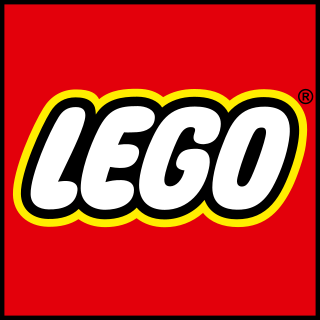
Lego is a line of plastic construction toys that are manufactured by The Lego Group, a privately held company based in Billund, Denmark. As of 2021, Lego was the largest toy company in the world. The company's flagship product, Lego, consists of variously coloured interlocking plastic bricks accompanying an array of gears, figurines called minifigures, and various other parts. Lego pieces can be assembled and connected in many ways to construct objects, including vehicles, buildings, and working robots. Anything constructed can be taken apart again, and the pieces reused to make new things.

Seymour Aubrey Papert was a South African-born American mathematician, computer scientist, and educator, who spent most of his career teaching and researching at MIT. He was one of the pioneers of artificial intelligence, and of the constructionist movement in education. He was co-inventor, with Wally Feurzeig and Cynthia Solomon, of the Logo programming language.

Lego Mindstorms is a hardware and software structure which is produced by Lego for the development of programmable robots based on Lego building blocks. Each version of the system includes a computer Lego brick that controls the system, a set of modular sensors and motors, and Lego parts from the Technic line to create the mechanical systems.
OSEK is a standards body that has produced specifications for an embedded operating system, a communications stack, and a network management protocol for automotive embedded systems. It has produced related specifications, namely AUTOSAR. OSEK was designed to provide a reliable standard software architecture for the various electronic control units (ECUs) throughout a car.
leJOS is a firmware replacement for Lego Mindstorms programmable bricks. Different variants of the software support the original Robotics Invention System, the NXT, and the EV3. It includes a Java virtual machine, which allows Lego Mindstorms robots to be programmed in the Java programming language. It also includes 'iCommand.jar' which allows you to communicate via bluetooth with the original firmware of the Mindstorm. It is often used for teaching Java to first-year computer science students. The leJOS-based robot Jitter flew around on the International Space Station in December 2001.
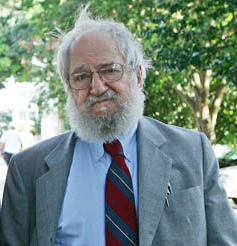
Constructionist learning is the creation by learners of mental models to understand the world around them. Constructionism advocates student-centered, discovery learning where students use what they already know, to acquire more knowledge. Students learn through participation in project-based learning where they make connections between different ideas and areas of knowledge facilitated by the teacher through coaching rather than using lectures or step-by-step guidance. Further, constructionism holds that learning can happen most effectively when people are active in making tangible objects in the real world. In this sense, constructionism is connected with experiential learning and builds on Jean Piaget's epistemological theory of constructivism.
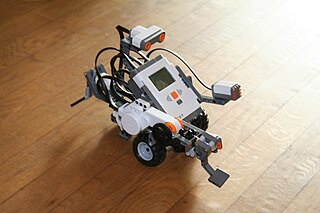
Lego Mindstorms NXT is a programmable robotics kit released by Lego in late July 2006. It replaced the first-generation Lego Mindstorms kit, which was called the Robotics Invention System. The base kit ships in two versions: the Retail Version and the Education Base Set. It comes with the NXT-G programming software, or optionally LabVIEW for Lego Mindstorms. A variety of unofficial languages exist, such as NXC, NBC, leJOS NXJ, and RobotC. The second generation of the set, the Lego Mindstorms NXT 2.0, was released on August 1, 2009, featuring a color sensor and other upgraded capabilities. The third generation, the EV3, was released in September 2013.
Next Byte Codes (NBC) is a simple language with an assembly language syntax that can be used to program Lego Mindstorms NXT programmable bricks. The command line compiler outputs NXT compatible machine code, and is supported on Windows, Mac OS and Linux. It is maintained by John Hansen, a Mindstorms Developer Program member.
Lego Education is a Lego theme designed specifically for schools that concentrates sets that can be used by education institutions and includes sets the focus on Duplo and Technic themes and contain larger amounts of pieces. The theme was first introduced in 1999.
The World Robot Olympiad (WRO) is a global robotics competition for young people. The World Robot Olympiad competition uses Lego Mindstorms manufactured by LEGO Education. First held in 2004 in Singapore, it now attracts more than 26,000 teams from more than 65 countries.

Bricx Command Center (BricxCC) is the integrated development environment (IDE) of Next Byte Codes (NBC), Not Quite C (NQC) and Not eXactly C (NXC). These programming languages are used to program the Robots in the Lego Mindstorms series. Not Quite C and Not eXactly C have a syntax like C. Bricx Command Center is currently limited to computers running the Microsoft Windows operating system. However, a version for the Linux operating system is currently in development. It is written by John Hansen.

For Inspiration and Recognition of Science and Technology (FIRST) is an international youth organization that operates the FIRST Robotics Competition, FIRST LEGO League Challenge, FIRST LEGO League Explore, FIRST LEGO League Discover, and FIRST Tech Challenge competitions. Founded by Dean Kamen and Woodie Flowers in 1989, its expressed goal is to develop ways to inspire students in engineering and technology fields. Its philosophy is expressed by the organization as Coopertition and Gracious Professionalism. FIRST also operates FIRST Place, a research facility at FIRST Headquarters in Manchester, New Hampshire, where it holds educational programs and day camps for students and teachers.
Dexter Industries is a company that designs robots for education, research, and personal use. The company makes several products that expand the LEGO Mindstorms system, Raspberry Pi and Arduino prototype system. The Products contains beginners and advanced parts for your projects.
Po Leung Kuk Tang Yuk Tien College was opened on 1 September 1987. It is the 8th English College of Po Leung Kuk.
The Robot Interaction Language (ROILA) is the first spoken language created specifically for talking to robots. ROILA is being developed by the Department of Industrial Design at Eindhoven University of Technology. The major goals of ROILA are that it should be easily learnable by the user, and optimized for efficient recognition by robots. ROILA has a syntax that allows it to be useful for many different kinds of robots, including the Roomba, and Lego Mindstorms NXT. ROILA is free for anybody to use and to contribute to, as the team has released all documentation and tools under a Creative Commons license.
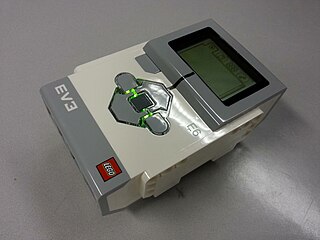
Lego Mindstorms EV3 is the third generation robotics kit in Lego's Mindstorms line. It is the successor to the second generation Lego Mindstorms NXT 2.0 kit. The "EV" designation refers to the "evolution" of the Mindstorms product line. "3" refers to the fact that it is the third generation of computer modules - first was the RCX and the second is the NXT. It was officially announced on January 4, 2013 and was released in stores on September 1, 2013. The education edition was released on August 1, 2013. There are many competitions using this set, including the FIRST LEGO League Challenge and the World Robot Olympiad, sponsored by Lego.
Enchanting is a free and open-source cross-platform educational programming language designed to program Lego Mindstorms NXT robots. It is primarily developed by Southern Alberta Robotics Enthusiasts group in the province of Alberta, Canada, and runs on Mac OS X, Windows, and experimentally on Linux devices. Since 2013, the Enchanting version 0.2 has been available.
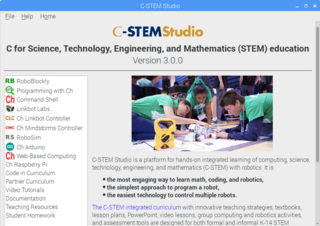
C-STEM Studio is a platform for hands-on integrated learning of computing, science, technology, engineering, and mathematics (C-STEM) with robotics. It can be used to control multiple Linkbot, Lego Mindstorms NXT and EV3, Arduino boards.

Catrobat is a block-based visual programming language and Free and Open Source Software (FOSS) non-profit project. The first release dates back to 2010 and was initiated by Wolfgang Slany from the Technical University Graz in Austria. The multidisciplinary team. develops the programming language and free apps for teenagers to create their own games, animations, music videos or all other kinds of apps directly on a smartphone based on the catrobat framework.